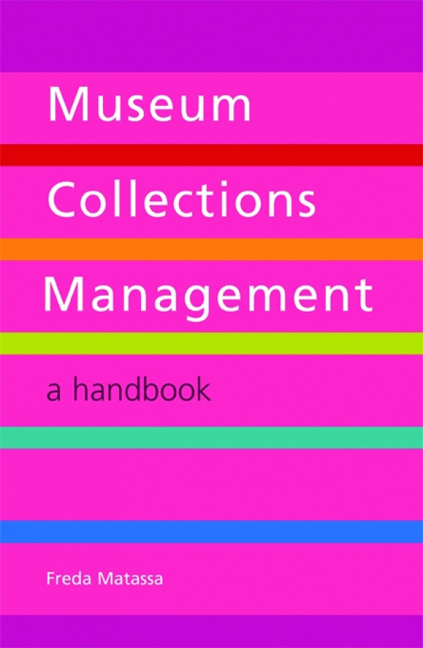3 - Ethical considerations
from Part 1 - Collections management: overview and principles
Published online by Cambridge University Press: 08 June 2018
Summary
Fundamentals
Museums and cultural collections operate within an environment of national and international ethical standards. They are self‑monitoring and can choose whether or not to endorse the various codes of practice. Acting in accordance with these codes, however, is essential for good faith and good reputation, particularly if an institution is in receipt of public money. It is a sign that the organization takes its role seriously as an objective research establishment, and the organization is more likely to be respected and regarded favourably in terms of loans, exhibitions and fundraising. Many museums choose to publish their endorsement of specific codes of ethics on their website or in their publications. General and specific codes are outlined below. This chapter also provides a detailed discussion of the ethics of deaccessioning and disposal, due diligence and provenance.
General codes
ICOM published its Code of Ethics in 1986, with amendments in 2001 and 2004. This remains the main international code on how to acquire and manage collections of cultural material and establishes a minimum standard. It lists the key principles of collections management as well as general ethical guidance. It encourages self‑regulation in accordance with high public expectations and allows individual countries to create their own professional standards. It covers all areas of ethics, including the physical protection of objects, preservation, the professional training and standing of staff, acquisition and disposal, due diligence, research and the uses of collections.
The Washington Principles on Nazi‑confiscated Art, 1998 address the sale, purchase, possession and exchange of art looted in German‑occupied Europe between 1933 and 1945. These are non‑binding principles which are an agreement by the signatories to work together to trace the art, to research its provenance and to seek and circulate information. It calls for a flexible and just resolution of claims.
The Terezin Declaration, 2009 is another non‑binding agreement whose signatories agree to take steps to implement national programmes addressing the issue of looted property according to best‑practice principles for restitution and compensation.
In the UK, the Museums Association Code of Ethics, 2008 covers much of the ground of the ICOM Code and puts it into a UK context.
- Type
- Chapter
- Information
- Museum Collections Management , pp. 31 - 42Publisher: FacetPrint publication year: 2011



